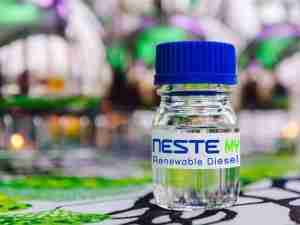JP Morgan paints bleak picture of global gas market in client note
By: Reuters | Oct 06 2015 at 09:43 AM | International Trade
MILAN - U.S. investment bank JPMorgan Chase warned that new global gas price lows will demolish producer profits as top Asian consumers freeze big purchases and rework or ditch existing import deals.
In a client note seen by Reuters, the bank spells out the changing strategies of the world’s top liquefied natural gas (LNG) importers—Japan’s JERA and South Korea’s Kogas —emboldened by surging supply to demand concessions from producers facing a decade of pain.
These include breaking away from oil-indexed LNG supply deals, which tend to be costly, and abolishing restrictions that currently bar buyers from diverting or re-selling cargoes.
“Sellers may be forced to offer buyers contract offtake flexibility as demand growth slows, providing continued challenges to producer profitability especially those exposed to lower-tier buyers,” JPM’s head of Asia oil and gas equity research, Scott Darling, wrote in the Oct. 1 report.
The note draws on 28 meetings between JPM and major Asian LNG players, including Kogas, JERA, Inpex and PetroChina, providing new insight into the buying strategies of major consumers.
Rising supply worldwide has cut spot LNG prices by more than 60 percent since February 2014 as demand wanes and new production gets underway in Australia and the United States.
Citing sources at the company, JPM says Kogas should avoid taking an impairment on its investment in two high-cost Australian LNG export projects—Prelude and Gladstone—so long as oil prices stay around $50/barrel.
At current oil prices Kogas sees an internal rate of return on Gladstone at 6 percent and Prelude at 7-9 percent, JPM says.
According to the note, both JERA, a joint venture between Tokyo Electric Power Co and Chubu Electric, and Kogas will not sign any new long-term import deals this decade.
Kogas intends to renegotiate existing contracts with top exporter Qatar and Oman, which expire in the early 2020s, while JERA will wait for deals signed with Qatar after the Fukushima disaster to run down before agreeing new ones, the bank said.
Kogas will also take advantage of expiring long-term deals to reduce exposure to oil-linked supply to half of its total LNG supply, pegging the rest to U.S. gas prices.
Kogas said nothing has been decided regarding its LNG fuel purchase strategy. JERA said it is reviewing what long-term contracts it will sign and has not yet decided on the amount of U.S. gas price-linked LNG it intends to buy.
In the note, JPM, citing JERA sources, said the firm plans to have 10 million tonnes/year of U.S. gas price-linked LNG by 2020.
Kogas expects cheap coal to reduce South Korean LNG imports in 2016 and sees stagnant demand from 2017, JPM said, removing a key pillar of support to global gas prices.
Spot LNG prices could drop below $6 per million British thermal units (mmBtu) next year, traders told the bank, compared with $6.60/mmBtu currently.










